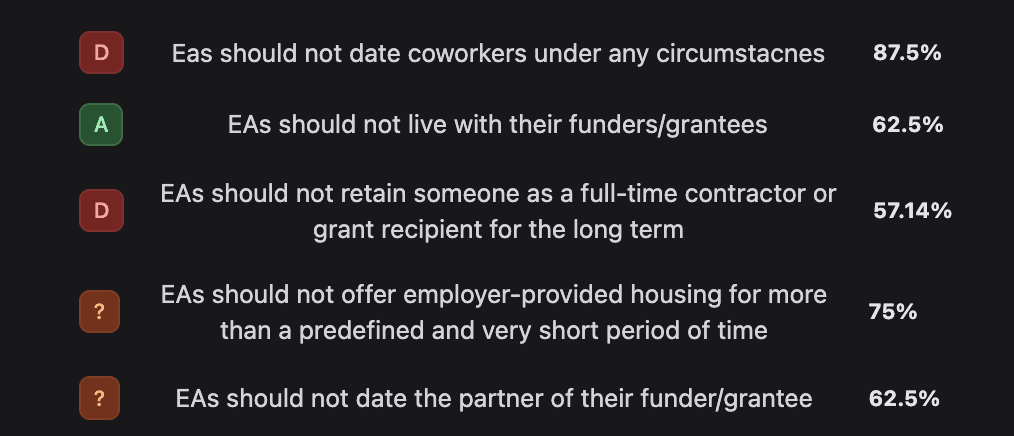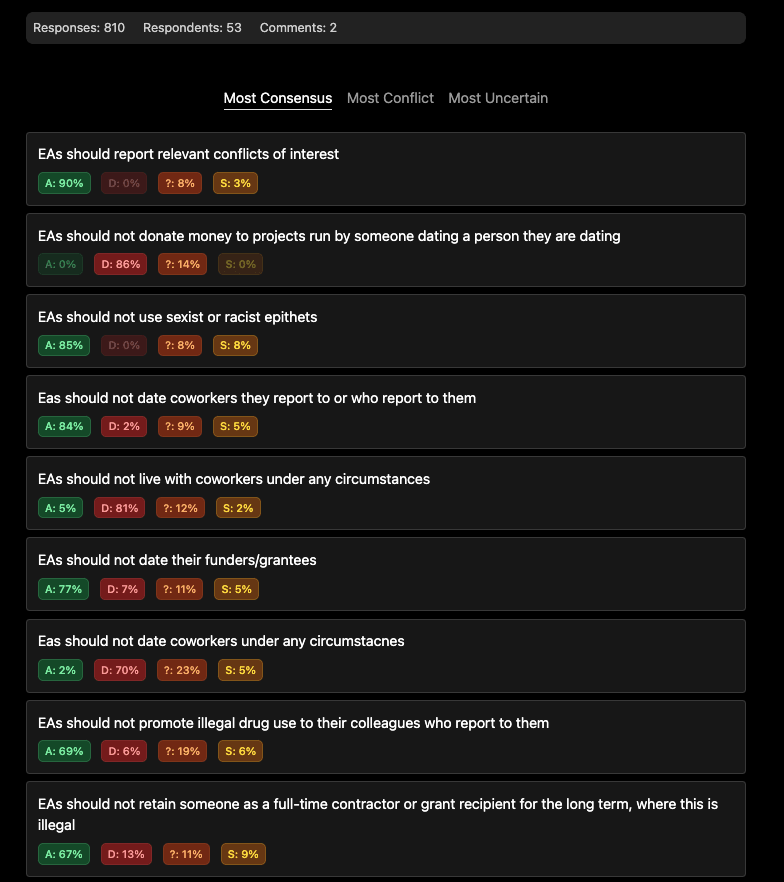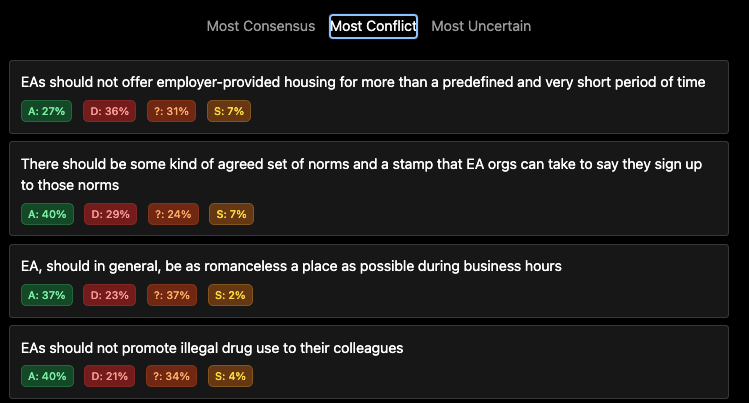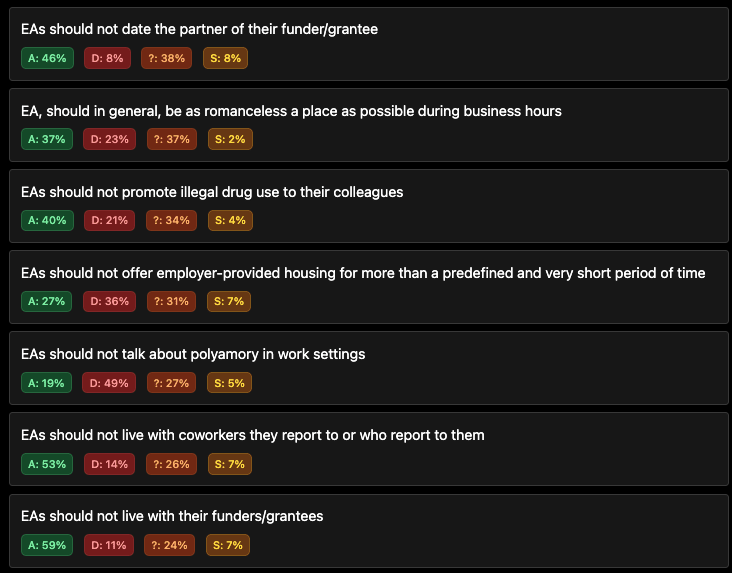There has already been ample discussion of what norms and taboos should exist in the EA community, especially over the past ten months. Below, I'm sharing an incomplete list of actions and dynamics I would strongly encourage EAs and EA organizations to either strictly avoid or treat as warranting a serious—and possibly ongoing—risk analysis.
I believe there is a reasonable risk should EAs:
- Live with coworkers, especially when there is a power differential and especially when there is a direct report relationship
- Date coworkers, especially when there is a power differential and especially when there is a direct report relationship
- Promote[1] drug use among coworkers, including legal drugs, and including alcohol and stimulants
- Live with their funders/grantees, especially when substantial conflict-of-interest mechanisms are not active
- Date their funders/grantees, especially when substantial conflict-of-interest mechanisms are not active
- Date the partner of their funder/grantee, especially when substantial conflict-of-interest mechanisms are not active
- Retain someone as a full-time contractor or grant recipient for the long term, especially when it might not adhere to legal guidelines
- Offer employer-provided housing for more than a predefined and very short period of time, thereby making an employee’s housing dependent on their continued employment and allowing an employer access to an employee’s personal living space
Potentially more controversial, two aspects of the community I believe have substantial downsides that the community has insufficiently discussed or addressed:
- EA™ Group Houses and the branding of private, personal spaces as “EA”
- "Work trials" that require interruption of regular employment to complete, such that those currently employed full-time must leave their existing job to be considered for a prospective job
As said, this list is far from complete and I imagine people may disagree with portions of it. I’m hoping to stake this as a position held by some EAs and I’m hoping this post can serve as a prompt for further discussion and assessment.
- ^
“Promote” is an ambiguous term here. I think this is true to life in that one person’s enthusiastic endorsement of a drug is another person’s peer pressure.





I think that if I am the generic able-bodied person with no other commitments then after work drinks are no problem. But maybe I have a history of alcoholism, and I can't be around alcohol. Or maybe I have kids to pick up from daycare, so I can't join. Or maybe I have an extra long commute and need to start heading home as soon as work ends. Or maybe it is as simply as having a small amount of hearing loss, such that even though office conversations are fine I literally can't hear anything in a bar with loud music and a dozen background conversations.
If it were just some friends hanging out then I think it wouldn't be so troublesome, but work relationships are often formed at "after work drinks," and as a result some people are systematically (although unintentionally) excluded from the very events that make them more likely to get promotions, etc.
I wouldn't go so far as to put some kind of a ban on "getting drinks," but I think that there should be consideration to benefits, risks, who is being excluded (and if it is justified to exclude them), etc. A lot of it is context-dependent, so we can't really make rules that apply to different organizations (what works for Org A might not work for Org B), but in general I am very much in agreement with you that I'd also "like to see a bit more nuance and thought."